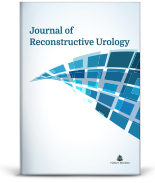Objective: The use of artificial intelligence models to inform patients about penile prosthesis implantation has not been sufficiently studied in the literature. This study evaluates the quality and readability of responses given by ChatGPT, DeepSeek, and Gemini to the most common questions asked by patients before penile prosthesis implantation. Material and Methods: We selected 15 common patient questions related to preoperative management, complications, and postoperative care regarding penile prosthesis implantation. These questions were submitted in English on February 10, 2025, to ChatGPT, DeepSeek, and Gemini. Responses were analyzed for information quality (using the DISCERN Tool) and readability (using the Gunning Fog Index). Results: ChatGPT had the highest DISCERN score (4.2±0.3), while DeepSeek (3.8±0.4) and Gemini (3.5±0.5) had lower scores (p<0.05 for all comparisons). In terms of readability, ChatGPT generated the most comprehensible responses (Gunning Fog Index: 7.1±0.6), whereas DeepSeek (8.3±0.7) and Gemini (9.0±0.8) produced more complex texts (p<0.05 for all comparisons). Conclusion: ChatGPT outperformed the other models in terms of information quality and readability, demonstrating its potential as a complementary tool for patient education and informed consent. However, the observed differences in information accuracy and readability among the models highlight the need for further refinement before full integration into clinical use.
Keywords: Intelligence; artificial; penile prosthesis implantation
Amaç: Yapay zeka modellerinin hastaları penil protez implantasyonu hakkında bilgilendirme amacıyla kullanımı literatürde yeterince incelenmemiştir. Bu çalışma, hastalar tarafından penil protez implantasyonu öncesinde en sık sorulan sorulara ChatGPT, DeepSeek ve Gemini tarafından verilen yanıtların kalite ve okunabilirlik açısından değerlendirilmesini amaçlamaktadır. Gereç ve Yöntemler: Penil protez implantasyonu ile ilgili preoperatif yönetim, komplikasyonlar ve postoperatif bakım konularında en sık sorulan 15 hasta sorusu seçildi. Bu sorular, 10 Şubat 2025 tarihinde İngilizce olarak ChatGPT, DeepSeek ve Gemini'ye yönlendirildi. Yanıtlar, bilgi kalitesi açısından DISCERN Aracı kullanılarak ve okunabilirlik açısından Gunning Fog İndeksi ile analiz edildi. Bulgular: ChatGPT, en yüksek DISCERN puanına sahipti (4,2±0,3), bunu DeepSeek (3,8±0,4) ve Gemini (3,5±0,5) takip etti (tüm karşılaştırmalarda p<0,05). Okunabilirlik açısından ise ChatGPT en anlaşılır yanıtları üretti (Gunning Fog İndeksi: 7,1±0,6), buna karşın DeepSeek (8,3±0,7) ve Gemini (9,0±0,8) daha karmaşık metinler oluşturdu (tüm karşılaştırmalarda p<0,05). Sonuç: ChatGPT, bilgi kalitesi ve okunabilirlik açısından diğer modellere üstünlük sağlamış ve hasta eğitimi ile bilgilendirilmiş onam sürecinde tamamlayıcı bir araç olarak potansiyelini göstermiştir. Ancak, modeller arasındaki bilgi doğruluğu ve okunabilirlik farklılıkları, klinik kullanıma tam entegrasyon sağlanmadan önce daha fazla iyileştirme gerekliliğini ortaya koymaktadır.
Anahtar Kelimeler: Zekâ; yapay; penil protez implantasyonu
- Bajic P, Patel PM, Nelson MH, Dornbier RA, Kirshenbaum EJ, Baker MS, et al. Penile prosthesis implantation and timing disparities after radical prostatectomy: results from a statewide claims database. J Sex Med. 2020;17(6):1175-81. [Crossref] [PubMed]
- Homolak J. Opportunities and risks of ChatGPT in medicine, science, and academic publishing: a modern Promethean dilemma. Croat Med J. 2023;64(1):1-3. [Crossref] [PubMed] [PMC]
- Shayegh NA, Byer D, Griffiths Y, Coleman PW, Deane LA, Tonkin J. Assessing artificial intelligence responses to common patient questions regarding inflatable penile prostheses using a publicly available natural language processing tool (ChatGPT). Can J Urol. 2024;31(3):11880-5. [PubMed]
- Schmidt J, Lichy I, Kurz T, Peters R, Hofbauer S, Plage H, et al. ChatGPT as a support tool for informed consent and preoperative patient education prior to penile prosthesis implantation. J Clin Med. 2024;13(24):7482. [Crossref] [PubMed] [PMC]
- Rees CE, Ford JE, Sheard CE. Evaluating the reliability of DISCERN: a tool for assessing the quality of written patient information on treatment choices. Patient Educ Couns. 2002;47(3):273-5. [Crossref] [PubMed]
- Świeczkowski D, Kułacz S. The use of the Gunning Fog Index to evaluate the readability of Polish and English drug leaflets in the context of Health Literacy challenges in Medical Linguistics: An exploratory study. Cardiol J. 2021;28(4):627-31. [Crossref] [PubMed] [PMC]
- Deng J, Lin Y. The benefits and challenges of ChatGPT: An overview. Benefits. 2023;2(2):2022. [Crossref]
- Smith A, Hachen S, Schleifer R, Bhugra D, Buadze A, Liebrenz M. Old dog, new tricks? Exploring the potential functionalities of ChatGPT in supporting educational methods in social psychiatry. Int J Soc Psychiatry. 2023;69(8):1882-9. [Crossref] [PubMed]
- Capece M, Di Giovanni A, Cirigliano L, Napolitano L, La Rocca R, Creta M, et al. YouTube as a source of information on penile prosthesis. Andrologia. 2022;54(1):e14246. [Crossref] [PubMed]
- Talyshinskii A, Juliebø-Jones P, Zeeshan Hameed BM, Naik N, Adhikari K, Zhanbyrbekuly U, et al. ChatGPT as a clinical decision maker for urolithiasis: compliance with the current european association of urology guidelines. Eur Urol Open Sci. 2024;69:51-62. [Crossref] [PubMed] [PMC]
- Biswas SS. Role of ChatGPT in public health. Ann Biomed Eng. 2023;51(5):868-9. [Crossref]
- Mattas PS. ChatGPT: a study of AI language processing and its implications. International Journal of Research Publication and Reviews. 2023;4(2):435-40. [Crossref]







.: Process List